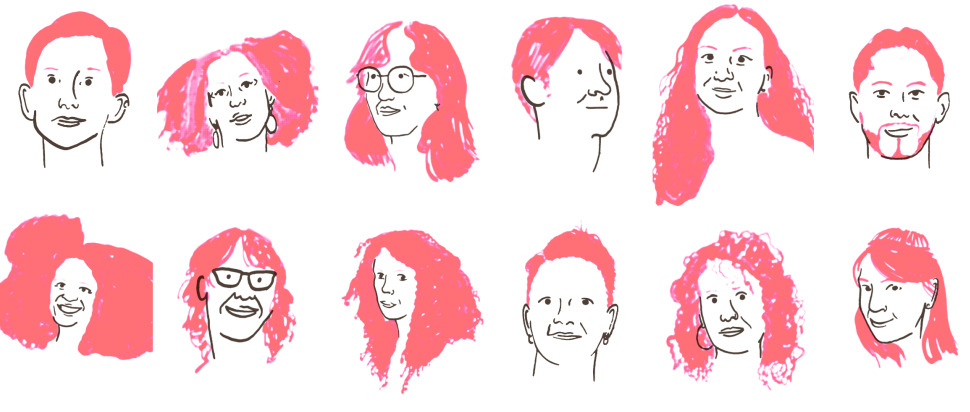The Next Generation of Scottish Writers
To celebrate 20 years of The Skinny we look ahead, presenting our Next Generation of Scottish Writers: 12 poets, novelists and essayists who are shaping the future of Scotland's literary landscape. We asked them to write about each other
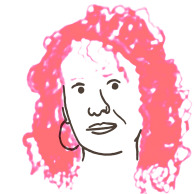 Eilidh Akilade
Eilidh Akilade
I love pieces of writing with a slightly feral intellectual edge, combined with a stylistic friction that gets under your skin. I felt this reading Eilidh Akilade’s Nitpicking, a pamphlet published this year by the excellent Glasgow-based publisher Rosie’s Disobedient Press. I enjoyed its roaming curiosity that takes lice as a jumping off point to (k)nit together its subjects, from Robert Burns to Girls Aloud and the psychoanalytic concept of abjection. All this is held together by Akilade’s elegantly playful style, which I hope to read more of in years to come. [Daisy Lafarge]
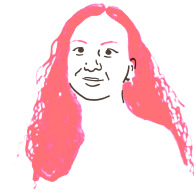 Nasim Rebecca Asl
Nasim Rebecca Asl
I think I first came across Nasim Rebecca Asl's work thanks to a performance piece she did which evoked Aphrodite, the Greek goddess of sexual pleasure, rising from the grime on the floor of a filthy nightclub, and I knew then that I needed to read more of her work (because she, clearly, had spent her late teens as I had). Finding the multilayered nature of her work, and how well it sits on the page as well as the stage, has been so fulfilling, as a reader; a resurrection in North-West Iran, Imagined, affects me every time I read it. [Heather Parry]
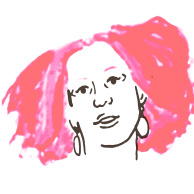 Mae Diansangu
Mae Diansangu
Mae Diansangu's joy in Scots fills her work with colour and light: she takes seriously all the sonic potential of words and weaves that through myths that remake land and language. Whenever I read Mae's words or see her perform, I feel sure that Scots is alive – in all the meanings of that word. That here's someone engaged in a critical and open-hearted way with what it means to be alive, in this place, with these words, with this history, with this bloody hope. I always want to be with writers who make me happy about what writing makes possible. [Harry Josephine Giles]
 Titilayo Farukuoye
Titilayo Farukuoye
Titilayo Farukuoye is such a luminous talent. Beyond their obvious skill and craft, the real power of their work lies in how it serves as both a call to action and a tool for meaningful communication. I find myself in their words and am grateful for the space they create for reflection. I feel so lucky to be writing at the same time as them, to connect and find community with them through our work. It’s a beautiful thing to see an artist so intentional about their commitment to a decolonial practice. It clearly underpins everything they do, making the work so urgent and impactful. To read their work is to be moved by the healing potential of poetry, especially when it is rooted in community and care. [Mae Diansangu]
 Harry Josephine Giles
Harry Josephine Giles
Harry Josephine Giles is a writer who seems to effortlessly get better with each book and each project; she first came into my consciousness with Tonguit almost a decade ago and it was clear her voice and ambition were something special even then. Deep Wheel Orcadia in particular is one of those books that's doing something that feels totally fresh, bringing together a deep intertextuality, an embrace of genre and a linguistic playfulness that is uniquely Josie – but the rage, politics and sheer linguistic delight within Them! makes Josie's most recent book my favourite yet. [Heather Parry]
 Katie Goh
Katie Goh
Katie Goh's full-length debut, Foreign Fruit, has one of the strongest opening chapters of any non-fiction work I've read. I still think about it, months later. Through personal and geopolitical history, the book refuses to remove racial capitalism from where it's always felt: in the flesh. I've had the privilege of working with Katie in their capacity as editor and events chair a few times, and it's struck me how generous and clear-sighted they are: a wonderful, inspiring mind working on multiple aspects of literature and in-between them. [Jessica Gaitán Johanneson]
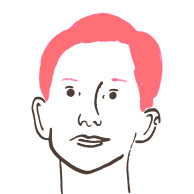 Jessica Gaitán Johanneson
Jessica Gaitán Johanneson
Jessica Gaitán Johanneson is truly one of our great thinkers. Someone who imbues her writing with a staunch commitment to a more just society and avoidance of climate despair. This is evident in her ability to move across form, brave multilingualism and to shift and shape words to say what needs saying. Her debut novel, How We Are Translated, is a humorous take on this conceit and demonstrates its author’s acute awareness of human fallibility and our chameleonic histories. Then to read her essay collection, The Nerves and Their Endings, is to truly appreciate her commitment to something greater. Lyrical prose yearning for something much more magnanimous and imaginative. Her words read as an invitation to lay bare one’s grief, both for what we have lost but what we still have time to save. [Andrés N. Ordorica]
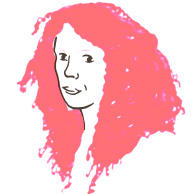 Daisy Lafarge
Daisy Lafarge
Undeniably, Daisy Lafarge is already a firm favourite in Scottish writing. Working across both poetry and prose, Daisy’s scope of talent is astounding. To write with such brilliant complexity, yet such ease of reading, is truly quite remarkable. In particular, I find myself returning and re-returning to essays of hers often, admiring each beautifully parcelled turn of phrase, each astute observation. Daisy’s creative output – and the generosity with which she navigates the writing scene – is most certainly something to be grateful for. [Eilidh Akilade]
 Andrés N. Ordorica
Andrés N. Ordorica
Andrés N. Ordorica’s work is the raw, lyrical, impassionate appreciation of what it means to be human, to love as well as to live beyond and in defiance of borders. In his work, the internationally celebrated poet and novelist describes “what it means to be from ni de aquí, ni de allá (neither here, nor there).” Deeply emotional (especially for queer readers and people of colour), his pages convey deep connection to family and ancestors and make visible struggles of honouring one’s truth. Ordorica’s vulnerable way of telling stories, merged with the profound love for loved ones (current and ancestors), spills over the page into our hearts and gives us a taste of what it means to let love win. [Titilayo Farukuoye]
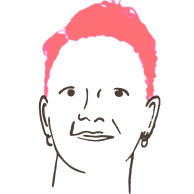 Heather Parry
Heather Parry
Heather Parry is able to throw readers right into the middle of every scene she creates. We’re not on the outside, clutching a book, wondering where the story’s going – we’re thrust into the beating heart of her language. Her writing is so crisp, so precise, her scenes are paintings we’re drawn into. It’s gory, and brutal, but beautiful. To read Heather is to know the human body in all its grotesqueness. The body becomes a vessel for biting social commentary, and her work is rooted in this, as well as the wonder that comes from asking ‘what if’ about historic events and periods. Off page, Heather’s just as talented – she’s a warm and engaging chair, fiercely intelligent, funny and witty. She pulls up the writers around her and has given so much time and energy to helping other writers and the literary landscape itself. [Nasim Rebecca Asl]
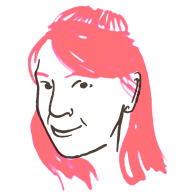 Alycia Pirmohamed
Alycia Pirmohamed
Alycia Pirmohamed is the embodiment of community. It’s impossible to read Pirmohamed's writing as separate from her work as a community organiser and champion of the other. As co-founder of the Scottish BPOC Writers Network and through her collaborative poetry projects with fellow nature writers Pratyusha, Jessica J Lee and Nina Mingya Powles, we witness a poet working towards rhizomatic connection. Pirmohamed's debut collection, Another Way to Split Water, explores water as something both ethereal and deeply felt, something that divides past and present. In the poem You Know It but It Don’t Know You she posits the question, “When does a country become a window?” This line is in essence the viewfinder through which we enter Pirmohamed’s lyrical world, excavating homelands and belonging through the natural landscapes of Canada, Scotland, and Tanzania. She invites us to find meaning in the elk, an ocean, fractals of a leaf. Like her poems, solace can be found anywhere, if only we dare to look. [Andrés N. Ordorica]
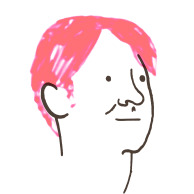 Oliver Robertson
Oliver Robertson
I first encountered Oliver Robertson’s writing through my work in writing development and it’s been a joy to follow his journey ever since. Oliver’s spoken word calls our attention to the wonders of the familiar – whether that’s our family, friends, or local area. In an age where we’re increasingly disconnected, Oliver’s work brings a grounded intimacy that resists false authenticities; in this, his work is essential listening. With an enviable warmth and humour, his presence on stage is truly a welcome (and welcoming) one. [Eilidh Akilade]
More writers we love...
There is no shortage of incredible, experimental, groundbreaking writers in Scotland. Some more to seek out at your local bookshop...
Graeme Armstrong
Check out: The Young Team
Iona Lee
Check out: Anamnesis, What I Love About a Cloud Is Its Unpredictability
K Patrick
Check out: Mrs. S, Three Births
Ely Percy
Check out: Vicky Romeo Plus Joolz, Duck Feet
Nat Raha
Check out: apparitions (nines), of sirens, body and faultline
Mohamed Tonsy
Check out: You Must Believe in Spring
